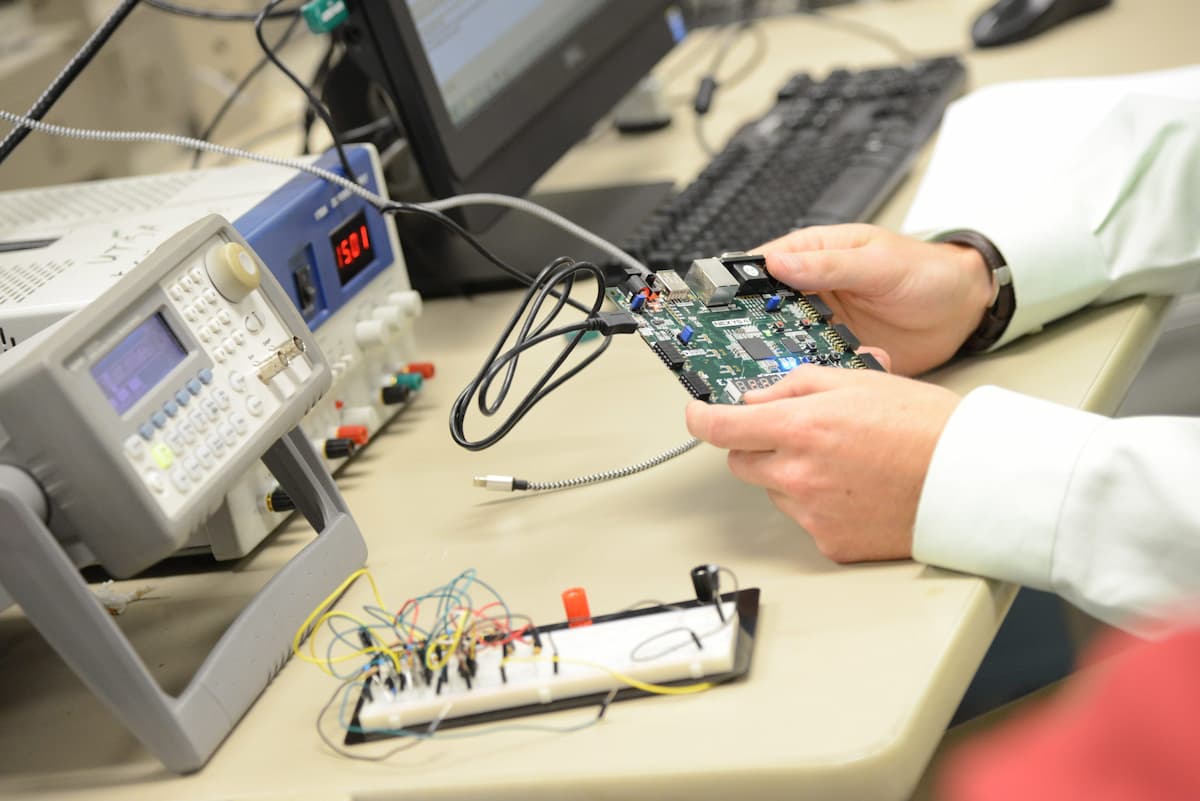Bachelor of Science in Biomedical Engineering (BME)
The Bachelor of Science (B.S.) degree in Biomedical Engineering (BME) at UTSA is an interdisciplinary program that combines engineering principles, approaches, and methodologies with biological, chemical, and physical sciences to define and solve problems in medicine. Students gain the skills to apply engineering and science fundamentals toward understanding living systems, diagnosing diseases, and designing treatments and technologies that improve human health.
Students develop a strong background in engineering, technology, and the physical and biological sciences, learning analysis, design, and synthesis tools needed for success in biomedical and healthcare technology fields. The Biomedical Engineering and Chemical Engineering Department is recognized for its outstanding undergraduate program, with graduates pursuing industry positions, graduate studies, or professional training in medicine and dentistry.
Focus Areas
- Biomechanics
- Biomaterials, Cellular and Tissue Engineering
- Imaging and Nanotechnology
Program Educational Objectives
- Contribute positively to biomedical industries and other sectors such as hospitals, government agencies, and academia.
- Enhance competence in biomedical engineering through advanced or professional degrees.
- Work successfully as a member of a team to facilitate biomedical engineering practice.
Total Credit Hours: 125 (minimum), including at least 39 upper-division hours.
Recommended Program of Study (2022–2024 Undergraduate Catalog)
| Year | Semester I (Fall) | Semester II (Spring) |
|---|---|---|
| Year 1 |
|
|
| Year 2 |
|
|
| Summer II |
|
|
| Year 3 |
|
|
| Summer III |
|
|
| Year 4 |
|
|
Total Degree Hours: 125
Admissions Requirements
- Submit the Letter of Intent including two references.
- Provide a copy of your transcript.
- Include a statement outlining your interests, career goals, and how the BME program supports your aspirations.
Note: Admission is competitive; meeting minimum requirements does not guarantee acceptance.

Your future starts here
Offering degrees and certificates in engineering, architecture, construction science and management, historic preservation, interior design, and urban and regional planning at undergraduate, graduate, and doctoral levels
9
Undergraduate Majors
15
Master's Degrees
6
Doctoral Degrees
8
Certificate Programs

